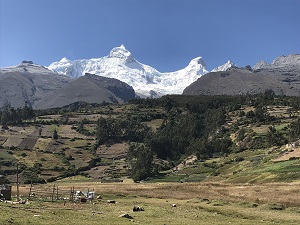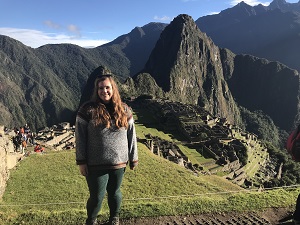 Matthew Jacobson is a current PhD student researching climate change and socio-economic transformations in the Late Antiquity of the Middle East. Read on to find out what he got up to over the summer…
Matthew Jacobson is a current PhD student researching climate change and socio-economic transformations in the Late Antiquity of the Middle East. Read on to find out what he got up to over the summer…
Whilst on holiday in Singapore earlier this year, I visited the Earth Observatory of Singapore (EOS) at Nanyang Technological University (NTU) and gave a presentation; this was on climate change in Arabia during the 7th century CE and the potential impacts of this on individuals, society and religion. The hospitality of Dr. Xianfeng Wang who hosted me was unparalleled, and I thoroughly enjoyed my time. I was given a tour of their laboratories, which were vastly different to Reading’s due to the influence of humidity on stable-isotopes – whereas our drilling lab is the same as any other room, to enter theirs you had to enter the academic equivalent of a decompression chamber and change your clothes (+shoes).
Luckily, before my presentation I saw a talk by Professor Charles Elachi (former head of NASA Mars Mission) and valuably noted what went down well in the presentation – the main point being that they found it hilarious if you referenced their Uni! Another lesson learnt following the presentation is to ensure you use all your allotted time for presentations: I finished slightly early and had to suffer 22 minutes of questions which meant they got particularly tough towards the end. Whilst in Singapore, I also visited the Asian Civilisation Museum (see below) and it was the best Museum I have ever visited, I could not recommend it more to anyone visiting the country (especially archaeologists)!
Later in the year, I also visited Princeton University in the states; where I was invited to the climate change and history research initiative (CCHRI) annual symposium to give a similar talk to the one I gave in NTU. This time I was lucky enough to be co-presenting with Professor John Haldon (Princeton) who is an esteemed historian, which saved some of the nerves – it also saved me from the horrible historical questions that came later! Both presentations went well, and I was happy with how I did! One of the patterns that I have observed whilst giving presentations is that people often ask about the aspects they understand least about – seems obvious but it’s more than that. Archaeologists/historians tend to ask me about the climate science whereas the climate scientists in Singapore asked lots of questions about the historical/archaeological aspects – prepare for any eventuality!
Matthew J Jacobson




